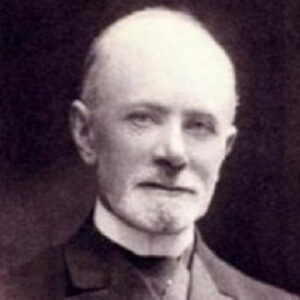Alfred Firmin Loisy was a prominent figure in the Roman Catholic Church’s Biblical Modernism movement. He was a French Roman Catholic theologian and biblical historian. As a critic of traditional views of biblical creation, he was outspoken about his views on religion and church, which frequently landed him in hot water. It was his commitment to religion and the church that led him to question traditions he believed were irrelevant in the modern era and laid the groundwork for the Roman Catholic Church’s Modernism movement. He believed that a literal interpretation of any religious text would be detrimental to humanity and that reinterpretation of the Bible was necessary to communicate a message of hope and faith to the common man. He had been groomed from an early age for a career in theology and received his early education in the Catholic system. As he grew older, his commitment to religion grew stronger, but he began to question the traditional interpretation of the Bible, which he felt was too rigid. Thus, he became a leading figure in the Roman Catholic Church’s Biblical Modernism movement, which emphasized a rational approach to the Bible with an emphasis on Enlightenment ideals.
Childhood & Adolescence
He was born on 28 February 1857 in Ambrieres, a village in the Paris region of France, 7 into a poor peasant family. He was raised in a religious environment and was groomed from an early age for a career in religion.
He attended the College de St. Dizier for high school. At the age of seventeen, he entered the diocesan seminary at Chalons-sur-Marne and studied there until 1879.
Around 1878–79, he enrolled at Paris’s Institut Catholique, where he continued his studies under the tutelage of Abbe Duchesne, a prominent church historian at the time. Loisy had his doubts about religion by this time, but ordained as a priest in 1879.
Career of Alferd
He was assigned to rural parishes for the next two years following his ordination as a priest. In 1881, he returned to the Institut as a professor of Hebrew.
While he adhered to the fundamental tenets of Christianity, he was opposed to several of the traditions surrounding the interpretation of the scriptures. Rather than that, he believed in the historical and critical methods of Bible study.
He believed that religious scriptures should be interpreted more freely in order to spread hope and faith throughout the world. As a result, he chose to compose an apologetic using the historical critical method.
In 1890, he defended a thesis on the Canon of the Old Testament, launching years of Bible criticism. Simultaneously, it sparked considerable controversy because it contradicted established beliefs.
His works also brought him into contact with like-minded individuals such as Maurice D’Hulst, George Tyrrell, and Baron von Hugel, who all collaborated to campaign for the church’s traditional views to be modernized.
Loisy contended that Moses did not write the Pentateuch and that the first five chapters of Genesis are unreliable accounts. Additionally, he believed that the New Testament and the Old Testament did not have equal historical significance.
His views and opinions infuriated several religious groups, and in 1893 he was dismissed from his position as professor at the Institut Catholique.
After graduating from the Institut Catholique, he worked for five years as a chaplain at a girls’ school in Neuilly. After years of study, research, and reflection, he organized his theology during this time period. In 1900, he was appointed lecturer at the Sorbonne’s Ecole des Hautes Études.
Between 1901 and 1903, he wrote several books based on his research into Christianity. These included ‘La Religion d’Isral, Évangéliques Études’, ‘L’Évangile et L’Église’, ‘Autour d’un petit livre’, and ‘Le quatrième Évangile’, all of which were condemned by the church.
He began work on ‘Les Évangiles Synoptiques’ in 1902 and completed it in 1908. He intended to compose this piece in response to Adolf von Harnack’s ‘Das Wesen des Christentum’. His work resulted in his excommunication.
Following his excommunication, he became a lay intellectual. He was then appointed professor of religions history at the Collège de France in 1909, a position he held until 1931.
Throughout his career, he refined his view of Christianity as a system of humanistic ethics. He compared studies on pre-Christian religious phenomena and their influence on Christian religions. He did not object to his excommunication, nor did he repudiate his views that had caused offense to the religious community.
Significant Works of Alferd
His work, ‘Les Évangiles Synoptiques,’ was published in 1908 following years of research and is regarded as one of his major works. He expressed his views on the formation of the Catholic Church in this work, which sparked much controversy and resulted in his excommunication.
He was a devout man who dedicated his life to the service of religion. He lived for 83 years, the majority of which were spent studying Christianity and assisting others in comprehending the true nature of religion. He passed away on 1 June 1940.
Estimated Net Worth
The net worth of Alferd is unknown.


